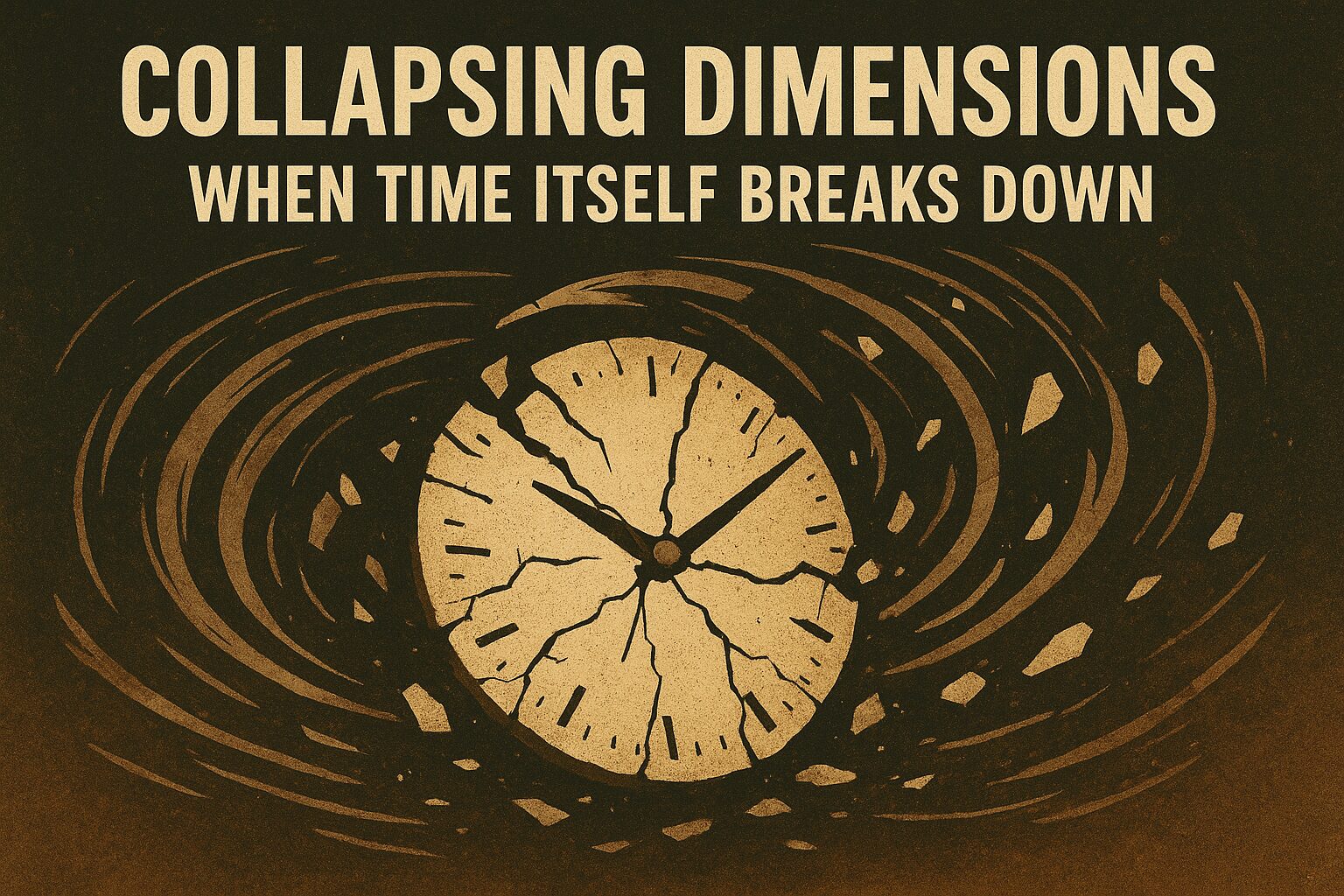Collapsing Dimensions: When Time Itself Breaks Down
Time, as one of the fundamental axes in our universe, governs every aspect of our reality. It marches inexorably forward, setting the rhythm for birth, growth, decay, and ultimately, death. Yet, physicists and philosophers have long pondered what happens when time itself begins to falter, potentially collapsing and breaking down. This article seeks to explore such phenomena, examining both theoretical underpinnings and their implications.
The Nature of Time: A Brief Overview
Time is often perceived as a constant progression, a straight line moving from past to future. Theoretical physicist Albert Einstein transformed our understanding of time with his theory of relativity, which merged time with the three spatial dimensions into a single four-dimensional continuum: spacetime. According to Einstein, time is relative and can be warped by gravity, leading to the proposition that time could potentially collapse under certain conditions.
“The distinction between the past, present, and future is only a stubbornly persistent illusion.” — Albert Einstein
Conceptualizing Time Collapse
In physics, a collapse of time could be viewed metaphorically through black holes and singularities, where the usual flow of time ceases to apply. Within a singularity, the gravitational pull is so immense that it distorts spacetime to such an extent that the conventional timeline vanishes. As Stephen Hawking illustrated in his theories, at the singularity at a black hole’s core, all known laws of physics break down.
- Singularities: In a singularity, densities become infinite, and thus, temporal dimensions no longer function as we understand.
- Event Horizon: This is the boundary surrounding a black hole beyond which no information can escape, indicating a boundary of time as well.
From a quantum mechanics perspective, the breakdown of time can also be theorized through the quantum theory of gravity, which seeks to reconcile general relativity with the principles of quantum mechanics.
Speculative Scenarios: Time as a Collapsing Dimension
Time Reversal and Entropy
The second law of thermodynamics, asserting that entropy or disorder tends to increase over time, implies a directionality to time. Some scientists propose situations where this arrow of time could potentially reverse. For example, should the universe undergo a cyclical pattern of expansion and contraction (the “Big Bounce” theory), time might reverse its course in the contracting phase.
“In a hotter, far-distant future, the universe might begin to behave very differently, with decreasing entropy causing time to run backward.” — Scientific American
Parallel Universes and Dimensional Breakdowns
Another speculative idea borrowed from the multiverse theory is that time could collapse or function differently across parallel universes. These universes might have entirely different physical laws, where time is a circle, a loop, or an entirely non-existent construct.
- In string theory’s extra dimensions, the collapsing of time in one of these could significantly impact the entire fabric of cosmic order.
- Quantum tunnels: Wormholes could theoretically allow for time travel or collapsing dimensions of time to fold onto themselves.
Philosophical Implications
The idea of time collapsing also presents numerous philosophical quandaries. Our perception of existence is intricately tied to the flow of time. If time can cease to exist or function in a fundamentally diverging manner, what implications would this have for concepts like causality, free will, and identity?
- Causality: If future events can influence the past, the intricate dance of cause and effect dissolves into chaos.
- Identity: Personal identity across time provides continuity to consciousness. A breakdown of time could shatter this cohesion.
The philosopher and cognitive scientist Daniel Dennett suggests that how we reckon time is crucial to consciousness, positing that any significant alteration to time’s fabric might radically alter our self-awareness and perception of reality.
“Our model of time is fundamental to the way we experience our consciousness and reality.” — Daniel Dennett
Conclusion
While the collapse of dimensions and time remains largely within the realm of theoretical physics and speculative philosophy, the very exploration of these ideas stretches our understanding of the universe and our place within it. The concept pushes the boundaries of human thought, challenging both scientists and philosophers to reevaluate the fabric of reality.
As we continue to probe the depths of black holes, quantum fields, and potential multiverse paradigms, we edge closer to a more profound comprehension of time itself. Whether time can indeed collapse or break down remains one of the universe’s most tantalizing mysteries, urging us to explore further, think deeper, and remain curious.
